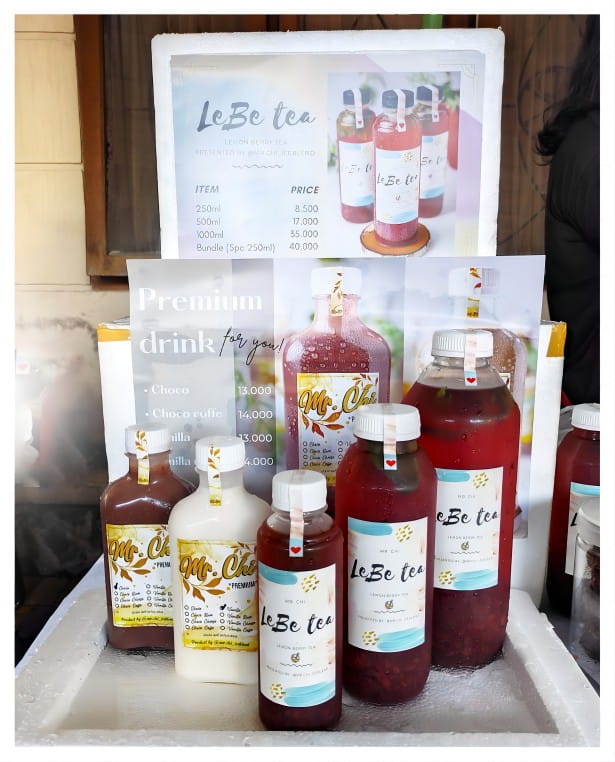Ascorbic Acid VC Buying Guide—FAQs about buying Ascorbic Acid VC

Choosing the right ascorbic acid supplement can be difficult. There’s a lot of info out there that might leave you confused. Questions about its safety, how effective it is, and where it comes from might be bugging you. You might even be wondering if ascorbic acid is the same thing as citric acid if it could harm you, or if it fits with vegan habits.
Don’t worry; Mondstar’s Ascorbic Acid VC Buying Guide is here to help. We’re going to clear up all that confusion with straightforward answers.
By the time you finish this guide, you’ll know exactly what role ascorbic acid plays in your diet and how to pick the right supplement for your needs.
What is vitamin C?
Ascorbic acid, or Vitamin C as most of us call it, is a vital water-soluble vitamin that our bodies need but can’t make on their own. It’s packed into many fruits—like citrus fruits, strawberries, kiwi, and tomatoes—boosting their natural vitamin C levels.
It’s an awesome antioxidant. That means ascorbic acid takes the lead in combating harmful free radicals in our body, protecting our cells and helping make collagen for healthy skin, blood vessels, and cartilage.
Since we humans can’t produce our supply of ascorbic acid internally, we’ve got to get it through foods rich in Vitamin C or take supplements to dodge deficiency problems like scurvy. This illness brings on fatigue and joint pain but is pretty rare in places with easy access to a variety of fruits and veggies.
Ascorbic acid is used as a food additive
Ascorbic Acid vitamina c, a powerhouse of an antioxidant, steps up as a strong preservative in lots of foods. It’s all about keeping things fresh and of the highest quality. When it comes to meats, Ascorbic Acid is pretty effective—it keeps spoilage at bay by stopping fats and oils from going rancid. Seafood also gets a freshness boost from it, ensuring your seafood dish looks as good as it tastes.
It’s also very important for fruits and vegetables. Ascorbic Acid battles against that annoying browning that happens when they’re cut open or get bumped around. This means they stay looking fresh, taste great, and keep their nutrients locked in longer on the shelf.
In the bakery section, Ascorbic Acid isn’t just hanging around for health points; it’s working hard behind the scenes. It acts as a dough conditioner—it gets that gluten in shape making breads and pastries rise better, feel fluffier, and overall just be more awesome.
And let’s not forget about breakfast cereals and juices. Here, Ascorbic Acid is used not just for flavor or texture but packs a nutritional punch by boosting vitamin C levels. This move is all about keeping those processed foods balanced and helping everyone achieve their daily nutrient goals.
Is ascorbic acid bad for you?
Not at all—ascorbic acid is a key nutrient that bolsters health and is safe when taken in the right amounts. Adults usually need about 75 to 120 milligrams of Vitamin C every day, depending on factors like age and sex. It plays a big role in keeping our bodies running smoothly, but sticking to these recommended doses is crucial to sidestep any negative side effects. Overdoing it, especially with high-dose supplements, might upset your stomach or cause issues like diarrhea and nausea. Plus, taking too much ascorbic acid could increase your chances of forming kidney stones if you’re already at risk or have kidney problems. So, it’s key to keep an eye on how much ascorbic acid you’re getting through supplements to stay safe and dodge these issues. Eating foods rich in Vitamin C is usually a safe bet for boosting your intake without the risks associated with overdoing it with supplements.

Is ascorbic acid the same as citric acid?
No, ascorbic acid vs citric acid are not the same thing, even though you’ll find both of them present in your food. Why? Because their chemistry and what they do for us are different. Ascorbic acid is our most common vitamin C source, playing a big part in keeping us healthy. Its primary function is to ensure that our skin, bones, and connective tissues stay strong thanks to its role in collagen making. Plus, it’s a powerful antioxidant that fights off cell damage from harmful free radicals, keeps our immune system tough, and helps our bodies grab more iron from plants.
Then there’s citric acid—think of the citrus flavor in lemons, oranges, and grapefruits. It is well-known for its sour punch and its ability to keep foods fresh longer. It excels at boosting flavors and balancing out the acidity in food but doesn’t boast the nutritional perks that ascorbic acid does.
So while they’re both very important in their own right within the food world, ascorbic acid shines with its health-boosting benefits as an essential nutrient. Meanwhile, citric acid is all about improving taste and quality in our favorite dishes.
Is ascorbic acid synthetic?
Ascorbic acid can come from both natural spots and man-made processes. When it’s natural, you’ll find it in fruits and veggies, especially in citrus ones like oranges and lemons. These foods give you ascorbic acid along with a lot of other beneficial components.
But, when we talk about the ascorbic acid you find in food additives or supplements, most of the time it’s made through chemical reactions which usually start from glucose. This synthetic version matches the natural one, molecule for molecule.
Both types are safe to eat and offer up all the vitamin C benefits your body needs. But because synthetic ascorbic acid is more stable and gives a consistent dose, it’s pretty popular in foods, drinks, and supplements. The vitamin C Mondstar supplies is this synthetic kind, mostly used to keep food fresh.
How long does vitamin C stay in your system?
Vitamin C doesn’t last long in our bodies. It’s a water-soluble vitamin, which means your body absorbs it fast and then gets rid of any extra through your pee.
From when you take it to a couple of hours later—about 30 minutes to 2 hours—vitamin C levels drop quickly in your system. That’s why eating Vitamin C-packed food regularly is key. It keeps the supply steady for all the important jobs vitamin C has to do, like making collagen and fighting off free radicals.
To keep those levels up where they should be, eating lots of fruits and veggies every day is your best option.

Is ascorbic acid vegan?
Ascorbic acid fits right into vegan diets, and here’s how. Most of it that you find on the shelves comes from synthesis rather than natural sources. This synthetic ascorbic acid, particularly appealing to vegans, is usually made from corn glucose. This process is both eco-friendly and ethical, steering clear of any animal-based ingredients or by-products. It’s a solid choice for those following a vegan lifestyle, proving that plant-based nutrition doesn’t miss out on essential nutrients like vitamin C.
Can ascorbic acid improve immune function?
Ascorbic acid gives your immune system a big boost in several key ways:
- It activates the production of interferons when it spots pathogens. These interferons then signal cells to increase their defenses.
- Ascorbic acid boosts the abilities of phagocytes—those white blood cells that chase down harmful particles and destroy them.
- White blood cells are vitamin C’s special place—some types can pack up to 80 times more vitamin C than what’s floating in your plasma.
- It also cranks up the production of cytokines by white blood cells. Think of cytokines as messengers that get immune cells moving toward where they’re needed most.
The above covers some common issues that arise when purchasing ascorbic acid for use in food manufacturing. Of course, you may have other questions or concerns throughout the purchasing process. Please contact Mondstar [email protected] – we’ll be happy to provide you with more guidance on choosing your ideal ascorbic acid product. Our experienced technical experts can provide solutions to any challenges you face when purchasing ascorbic acid.
